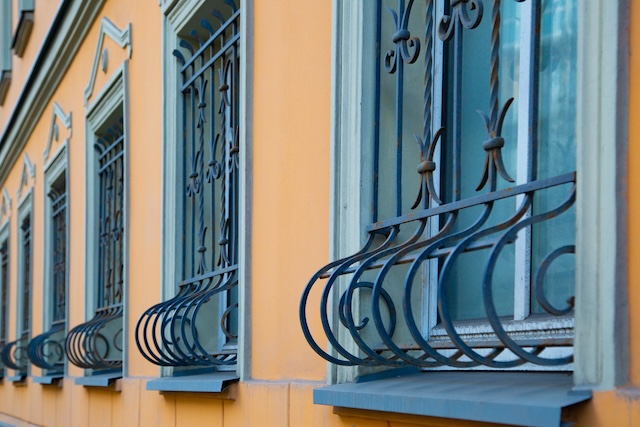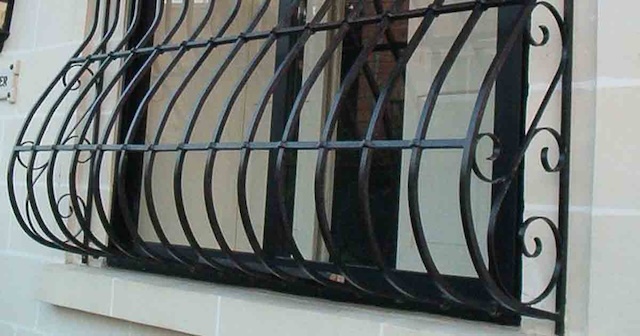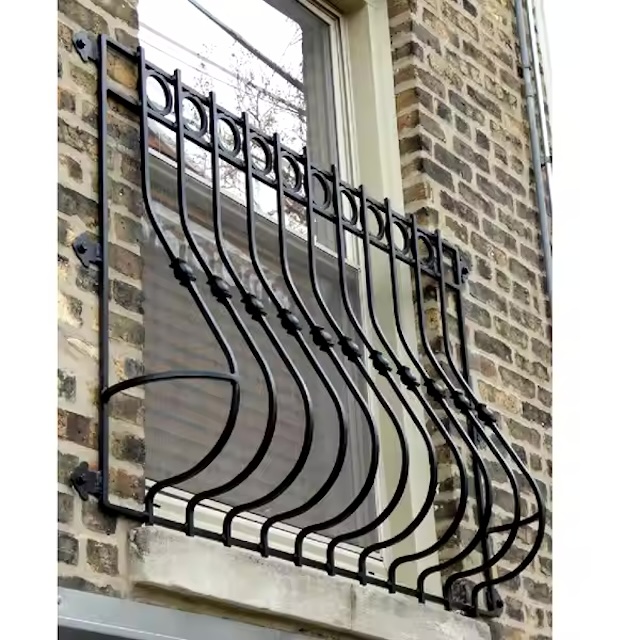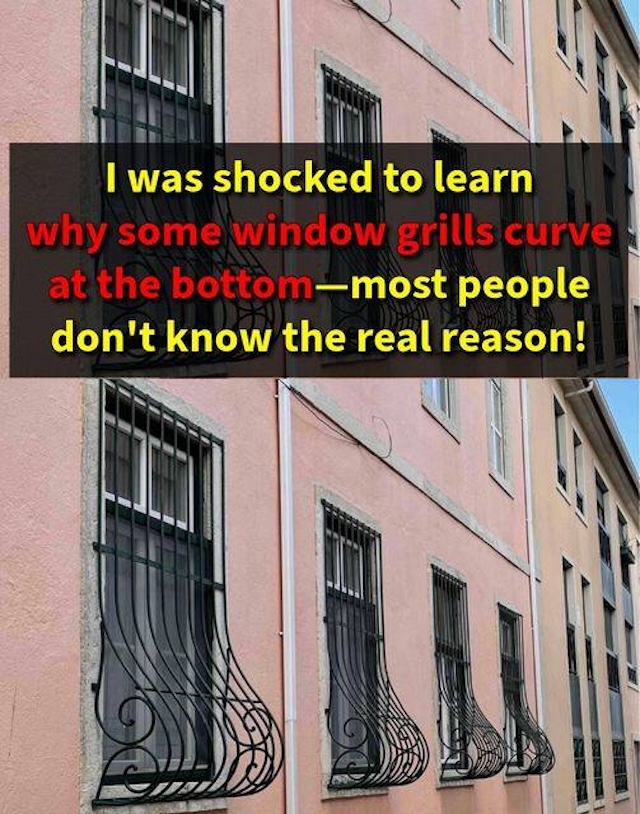If you’ve ever noticed window grills with a unique curve at the bottom and wondered about their purpose, you’re not alone. These curved grills, often seen on buildings in older cities or traditional structures, have sparked curiosity for decades. Let’s explore what these grills are, their origin, common misconceptions, and their practical uses.
What Are Curved Window Grills?
Curved window grills, also known as “belly bars” or “bowed window guards,” are metal grills that extend outward from the base of a window. Unlike traditional flat grills that stay flush against the wall, these grills have a distinct outward curve, creating a small, caged balcony-like space. They are typically crafted from wrought iron or steel and are designed for both functionality and aesthetics.

Who Invented Curved Window Grills?
The exact origin of curved window grills is somewhat unclear, as they have been used in various cultures for centuries. However, they are commonly associated with European architecture, particularly in countries like Spain, Italy, and France, where they were often featured on buildings during the Renaissance and Baroque periods. The intricate designs and curves became popular as artisans found ways to blend beauty with functionality.
These designs may also trace their roots back to practical adaptations made by blacksmiths and metalworkers in urban environments. The concept of extending window grills outward provided both security and utility, as it allowed for a slight extension to place flower pots or household items.
Common Misconceptions About Curved Window Grills
One common misconception is that the curved design is purely decorative, added for aesthetic charm without any functional purpose. While it’s true that they add a touch of elegance to a building’s façade, their design serves several more practical purposes.
Another misconception is that these grills are only found in old, historical buildings. On the contrary, curved window grills are still used in modern homes and urban apartments for reasons that go beyond aesthetics.

Practical Benefits of Curved Window Grills
Curved window grills are not just an architectural flourish; they come with tangible advantages that contribute to safety, convenience, and overall home functionality.
Safety and Security
One of the primary reasons for the existence of curved window grills is safety. The extended design allows residents to have their windows open for ventilation while still preventing intruders from entering. The curve acts as a barrier that makes it harder for unauthorized access, providing peace of mind to homeowners, especially in ground-floor apartments or buildings with easy access.
Additional Space
The curved shape creates a small, usable space outside the window. In many older European homes, residents would use this space to place flower pots, small plants, or even to dry laundry. This practical use of space is especially beneficial in urban areas where outdoor space is limited. The grill provides an extension to interact with the outdoors without compromising the security of the home.
Enhanced Ventilation
The curved grill design allows for better air circulation into the living space. The outward extension ensures that the grill doesn’t block the airflow as much as a flat grill would, enhancing the natural ventilation in the home.
Protection From Accidental Falls
For homes with children or pets, curved window grills act as an extra layer of safety. They prevent young kids or animals from accidentally falling out of open windows. The outward curve also means that, should someone lean out, there is a barrier to prevent them from toppling over.

Additional Creative Perspectives
The use of curved window grills goes beyond practicality. Over time, they have become a staple of artistic expression in architecture. Modern designers and architects incorporate unique patterns and artistic curves that showcase culture, creativity, and tradition. Some homeowners even choose custom-designed grills that reflect personal taste, ranging from simple bow-shaped patterns to elaborate, ornate motifs that evoke an antique charm.
Conclusion
Curved window grills are more than just a charming feature seen on old European buildings; they are a blend of art, practicality, and history. From offering added safety and security to providing small usable outdoor spaces, their design serves multiple purposes that often go unnoticed. The next time you see these curved grills, you’ll know they are not just for show—they’re a testament to ingenious, functional design that continues to be relevant in modern architecture.



